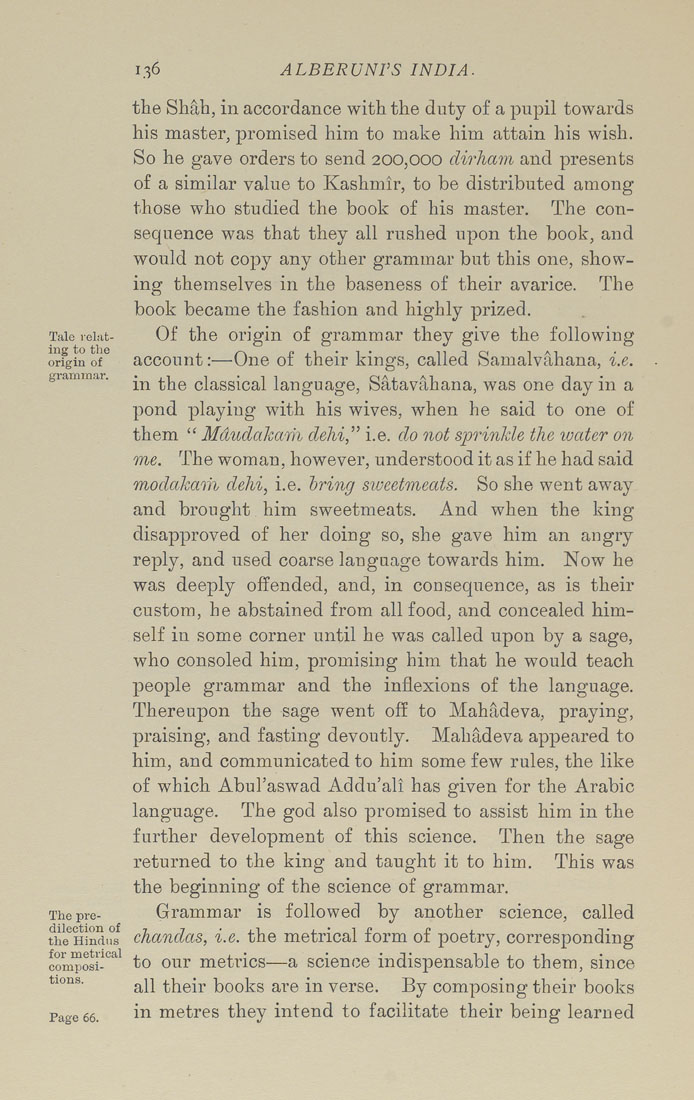Bīrūnī, Muḥammad ibn Aḥmad, Alberuni's India (v. 1)
(London : Kegan Paul, Trench, Trübner & Co., 1910.)
|
||
|
|
|
|
| Page 136 |

136 ALBERUNPS INDIA. the Shah, in accordance with the duty of a pupil towards his master, promised him to make him attain his wish. So he gave orders to send 200,000 dirham and presents of a similar value to Kashmir, to be distributed among those who studied the book of his master. The con¬ sequence was that they all rushed upon the book, and would not copy any other grammar but this one, show¬ ing themselves in the baseness of their avarice. The book became the fashion and highly prized. Tale reiat- Of the Origin of grammar they give the following orfgin of^ accouut:—One of their kings, called Samalvahana, i.e. grammar. ^^ ^^^ classical language, Satavahana, was one day in a pond playing with his wives, when he said to one of them " Mdudakam dehi," i.e. do not sprinkle the ivater on me. The woman, however, understood it as if he had said modakam dehi, i.e. bring sxceetmeats. So she went away and brought him sweetmeats. And when the king disapproved of her doing so, she gave him an angry reply, and used coarse language towards him. Now he was deeply offended, and, in consequence, as is their custom, he abstained from all food, and concealed him¬ self in some corner until he was called upon by a sage, who consoled him, promising him that he would teach people grammar and the inflexions of the language. Thereupon the sage went off to Mahadeva, praying, praising, and fasting devoutly. Mahadeva appeared to him, and communicated to him some few rules, the like of which Abul'aswad Addu'ali has given for the Arabic language. The god also promised to assist him in the further development of this science. Then the sage returned to the king and taught it to him. This was the beginning of the science of grammar. The pre- Grammar is followed by another science, called the'^Hindus chanclcts, i.c. the metrical form of poetry, corresponding com^osi-°^ to our mctrics^—a science indispensable to them, since tions. ^Q their books are in verse. By composing their books Page66. ^^ mctrcs they intend to facilitate their being learned |
| Page 136 |







